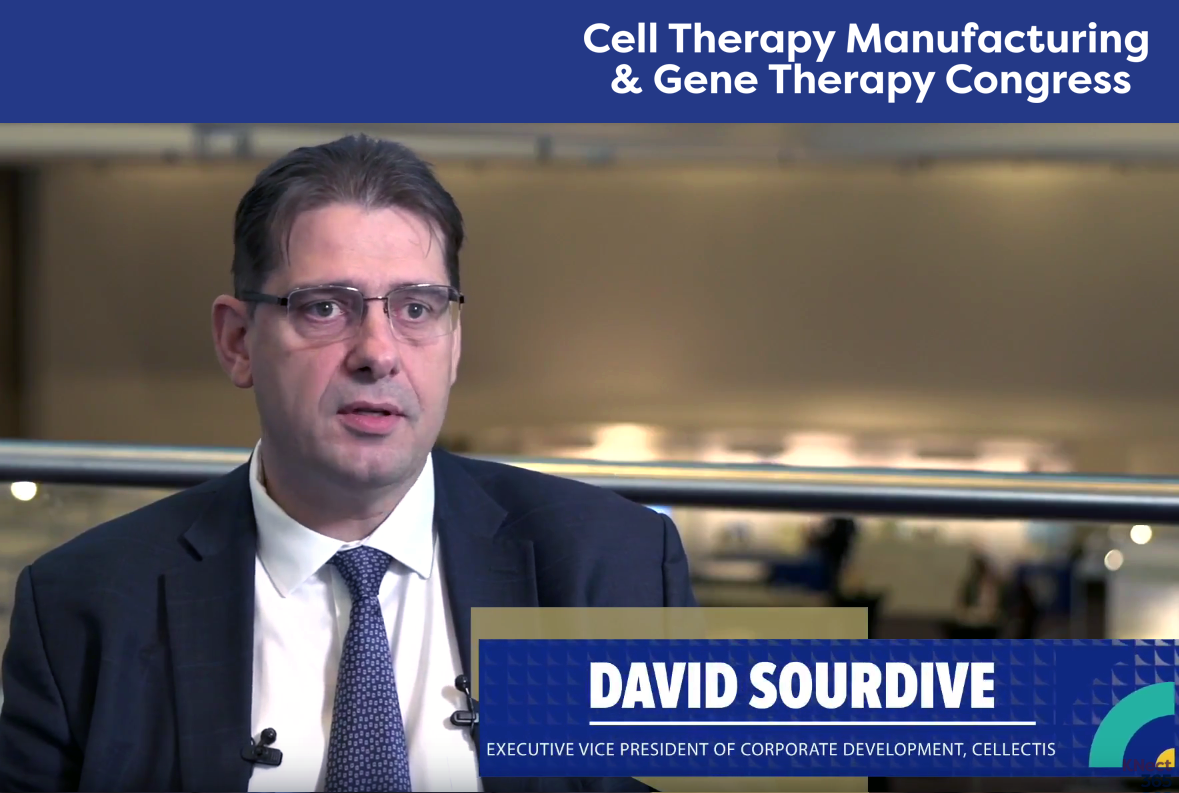The ‘transformative power’ of gene editing, with David Sourdive, Cellectis

‘Gene editing has a very transformative power in adaptive T cell therapy. In gene editing, we can make T cells do much more than they would normally do without being engineered.’ In this far-ranging interview, David Sourdive, Executive Vice President of Corporate Development at Cellectis, outlines the exciting updates from Cellectis’ current CAR-T therapy projects, from manufacturing, to clinical trials. He details his hope for the future and highlights the challenges that working with T cells can bring.
The possibilities of using gene editing to leverage the power of T cells into ‘better killers’ to ‘overcome the defence mechanisms of tumour cells’ are clear for Sourdive. Whilst acknowledging the current successful use of autologous treatments, he believes the industry is moving towards the possibility of ‘real pharmaceutical off the shelf T cell products’. There is an undeniable enthusiasm from Sourdive about gene editing to ‘maximise the power of T cells’, which can develop treatments that will meet the standard of care that chemotherapies and antibody therapies have.
UCART19 is one such ‘off the shelf’ therapy that Cellectis has developed. It has now been administered by Great Ormond Street Hospital in London in two patients who have both successfully gone into remission. Since then, two clinical trials have begun in London: a paediatric study at Great Ormond Street, and an adult study at King’s College Hospital. UCART19 has progressed and is now in the clinic, whilst their next product, UCART23, has finished being manufactured and is set to be used in two studies in the USA at Cornell University and MD Anderson.
As well as these two, Sourdive also discusses other products currently in the pipeline, including UCART38 and UCART22. They also continue to strengthen their technologies and improve their manufacturing process, resulting in an ‘increase in yield 20-fold, and a decrease in cost about 50-fold’.
However, successful development of gene therapies does not come without its challenges. Sourdive outlines the hurdles they had to overcome during the scale up of T cell therapy production. Speaking on the ‘very specific kind of cell,’ that make a ‘specific kind of product’, Sourdive recognises going large scale is what they envisioned from the beginning, and is a vital step within industrialisation. The factors Cellectis has had to consider and accommodate, including control and regulatory steps, Sourdive believes will benefit their future products and the timescale for moving them into clinical stages.
Sourdive finishes by offering some guidance for biotech companies looking to start up in the CAR T, or the ‘crowded space’ of cell and gene editing. He outlines the necessity of having ‘very original ideas’ and to ‘come with specific approaches’, while working backwards from patient, to clinic, to disease, to locate the areas of development the initial CAR-Ts were unable to and ‘really make a difference to the patient’. For Sourdive, the fact that ‘a lot of issues for gene editing will lie in the delivery’, means addressing the issues of the patient is a key success factor.
In terms of gene editing – an area in which Sourdive notes there are ‘a lot of people, but not a lot has been done’ – he believes the technologies which are currently adopted, such as TALENs and CRISPR Cas9, will progress, so a newcomer needs to understand what kind of editing needs to be done.
Watch the full interview, filmed at Cell Therapy Manufacturing & Gene Therapy Congress, with David Sourdive above or here.